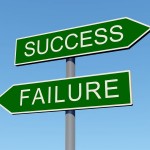 John Jantsch’s post today is about the three things every business must manage: Purpose, Projects, and Process:
John Jantsch’s post today is about the three things every business must manage: Purpose, Projects, and Process:
- Purpose: create and tell the story about why the business does what it does.
- Projects: create actions steps and assemble resources to fulfill the business purpose.
- Process: implement the action steps.
These three functions obviously apply to every attorney and law firm. However, while we all need to manage purpose, projects, and process, we’re not all in the same business (practice area).
A few years ago, I wrote a post, “The Three Things That Matter Most,” about finding and focusing on the essence of what you do. The three things that matter most for you are the “twenty percent” activities that deliver eighty percent of your (desired) results. When you focus on these three things, you can eliminate (delegate) or curtail everything else, freeing you to do more of your “twenty percent” activities, getting more results.
If you want to earn more and work less, you must focus on the things that matter most. Therefore, once you know and are prepared to articulate your purpose, take the time to reflect on what matters most in your practice before you create any projects or engage in the process of fulfilling that purpose.












How to be rich and happy
When I was young, I wanted to be a writer. That was my dream. I loved reading and the feel and smell of books. I haunted libraries and bookstores, imagining my own books in the windows and on the shelves.
I was a voracious reader. Non-fiction and fiction. Business, marketing, biographies, history; mysteries, thrillers, detective novels, science fiction. And books on writing.
But while I have written extensively throughout my career, early on, I somehow convinced myself that writers don’t make much money and I needed to do something more remunerative. Make money first, then I can retire and write all I want.
I now know this is folly.
To deny your passions, no matter the financial ramifications, is to deny the truth of who you really are. Working to make money so you can then do something else is simply bad advice.
But what if what you are passionate about is a one way ticket to financial mediocrity? At some point, you have to ask yourself, “What’s more important, money or happiness?” Yes, money is important and having more of it gives you more options. But having money does not guarantee happiness. Legions of unhappy wealthy people attest to that.
How about asking a different question: “What if what you are passionate about can lead to wealth and happiness?” It can, you know. In fact, I believe that following your passion is a much better road map to prosperity than working for money.
I’ve accomplished a lot in my career. I’ve done well financially. Â And now, decades after my childhood passion first stirred in me, I am writing. This blog is just the tip of the iceberg.
How does it feel? It feels. . . right. I can’t describe what I feel as excitement, it’s more a feeling of serenity, of “this is who I am and where I belong”.
But I also have flashes of regret.
What if I had listened to my inner child, the one who wanted to be a writer? What if I had ignored the voice of “logic” that told me to do something else? Where might I be today?
I don’t know if I’d be rich, but I know I’d be happy.
If I’d read the story of “The Rich Fisherman,” I might be in a different place today: